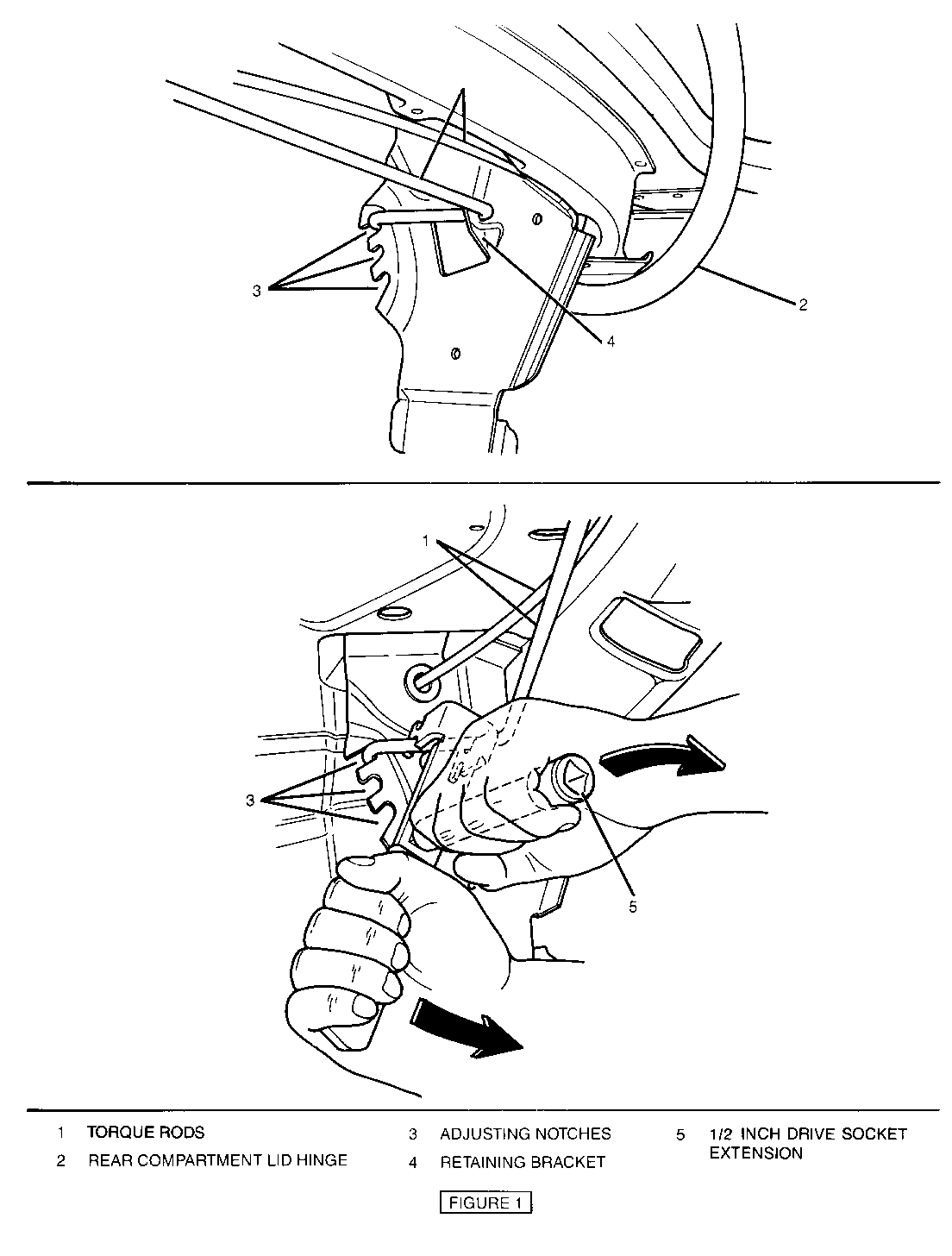SERVICE MANUAL UPDATE-SEC.10-8 REAR COMP LID HINGE TORQUE ROD

SUBJECT: SERVICE TOOL FOR THE REAR COMPARTMENT LID HINGE TORQUE RODS
MODEL and YEAR: 1982-92 CAVALIER 1988-93 CORSICA AND BERETTA
APPLICATION: "J" Series: 1982 - 1992 "L" Series: 1988 - 1993
This is a service manual update to Section 10-8 regarding a service tool developed to assist in adjusting and/or replacing rear compartment lid hinge torque rods.
Adjust:
------ When adjusting the tension on torque rods, raise or lower either the right or left torque rod one adjusting notch at a time. It is important to keep the tension on both torque rods as close as possible. To increase the tension on the rear compartment lid hinge, move the end of the torque rod down a notch. To decrease the tension on the rear compartment lid hinge, move the end of the torque rod up a notch.
CAUTION:
To avoid eye and hand injury, always wear safety glasses and gloves when adjusting and/or replacing the rear compartment lid hinge torque rods.
Figure 1:
1. Prop rear compartment lid in full-open position to keep lid from falling in case torque rod(s) (1) is disengaged completely from retaining bracket (4).
2. Using tool J-39719 and a 1/2" drive socket extension, disengage end of torque rod(s) (1) from adjusting notches (3) and reposition rod(s) (1) as necessary.
Remove or Disconnect:
1. Prop rear compartment lid in full-open position to keep lid from failing when torque rod(s) (1) is completely disengaged from retaining bracket (4).
2. Using tool J-39719 and a 1/2" drive socket extension, remove end of torque rod(s) (1) by rotating end of torque rod out of adjusting notches (3) and remove torque rod(s).
Install or Connect:
1. Attach tool J-39719 to torque rod(s) (1) and hinge rear of torque rod on retaining bracket (4) as shown in Figure 1.
2. Insert end of torque rod(s) (1) to the appropriate adjusting notch (3).
Use applicable labor operation time.

General Motors bulletins are intended for use by professional technicians, not a "do-it-yourselfer". They are written to inform those technicians of conditions that may occur on some vehicles, or to provide information that could assist in the proper service of a vehicle. Properly trained technicians have the equipment, tools, safety instructions and know-how to do a job properly and safely. If a condition is described, do not assume that the bulletin applies to your vehicle, or that your vehicle will have that condition. See a General Motors dealer servicing your brand of General Motors vehicle for information on whether your vehicle may benefit from the information.
